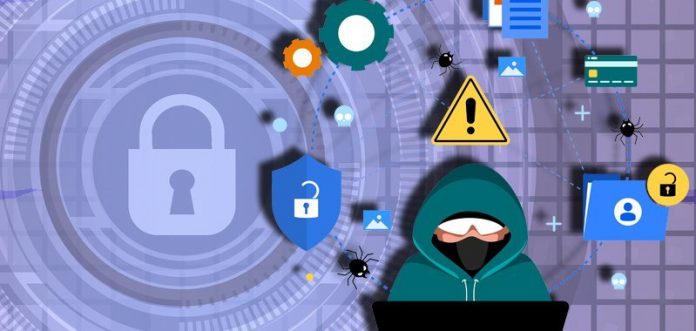
The advent of the centralized web marks a distinct technological breakthrough for humans. When Tim Berners-Lee invented the web, he didn’t know it would also become a tool for fraudulent activities. His innocuous invention was to project the world to a more civilized and interactive community where humans can relate with one another irrespective of their differential geography. Unfortunately, this has also attracted nefarious users who embark on conning people out of their assets.
According to CNBC, $5.8 billion was lost to fraudulent activities in 2021 alone, representing a 70% increase from what was reported in 2020. FTC reported that about 2.8 million people have been affected annually, with investment scams consistently topping the chart.
Although there’s no particular way of scamming people on the web, these internet fraudsters employ typical schemes to milk people of their hard-earned dough. Their notable strategy ranges from phishing to fake lotteries, romance scams, and catfishing as a result of identity theft, to mention but a few.
So, how do I avoid scams and stay safe on the decentralized web—web 3.0?
Since scamming is always about obtaining people’s wealth illegally, what is crucial on web3 with regards to scamming is to protect the digital wallet where your assets are stored. Implementing the following tips will guarantee your wallet is safe and secure from con artists lurking around the web.
1. Ensure you download the official app or web extension
If you’re downloading any web3 application or extension, make sure you’re downloading it directly from the website. Most scammers have cloned dummy apps that you shouldn’t fall victim to. To ascertain the app’s uniqueness, check the reviews, the number of downloads, and the developer’s information; this will reveal some red flags if it is a cloned app.
2. Never share your seed phrase
The seed phrase is used to recover or import your old wallet. If scammers get ahold of your seed phrase, they can access your digital wallet with it on another gadget, change your wallet’s password, and make away with your asset. To avoid being scammed through this, check that your seed phrase is safe from prying eyes or unauthorized people and never disclose it to anyone.
3. Always use a strong and new password to secure your wallets and apps
Passwords are your pass to your wallets. It might be taxing to remember a series of unrelated passwords, so rather use a password manager to store your passwords for each app, web page, wallet, and others that require a password.
Recycling the same password is risky. If anyone has a password to one of your wallets and you’re using the same password on all platforms, they can start trying them out and gain entry into your account. But if you’re using a different password for different wallets or platforms, knowing one password won’t compromise others.
4. Use 2FA— Two-Factor Authentication
Two-factor authentication is another security model that guarantees your accounts’ protection on platforms that use this authentication method. 2FA adopts two different modes or layers of verifying who is trying to gain entry to your account.
When you log in to your account after providing your password, you’ll receive extra log-in codes, probably an OTP—one-time password—to verify you haven’t been hacked. The OTP will either be sent to your email box or mobile number, which is expected to be accessed by you alone.
5. Shun hyperlinks or web links from cold emails
Cold emails are usually spontaneous emails you receive in your mailbox. Scammers can send such emails with web links that your account security will be compromised once you click on them. They can also send a cold mail with underlying malicious codes, so avoid clicking on them before even clicking to read.
6. Eschew downloading unsolicited files
Scammers can request that you download a jpeg file or PDF or documents. Don’t click or download them if it seems strange or even innocuous. They are usually doctored with malicious codes that could compromise your accounts and sometimes other wallets and accounts connected to your mobile device or computer.
7. Consider using a hard wallet to store your assets and secure the wallet
A hard or cold wallet is an external wallet that is not connected to the internet. Since the internet is prone to hacking, hackers have no way of gaining access to your hard wallet except if they have it in their custody.
8. DYOR before engaging in any investment of related monetary activities on web3
It would be best if you didn’t neglect due diligence before investing. Before investing in any project, do your research until you’re convinced there’s nothing to fear. If you’re still in doubt but wish to try your luck, invest what you can afford to lose.
9. Avoid juicy giveaways or outrageous returns
Everybody loves giveaways. Most scammers employ these giveaways to lure users to their project or illicit investment plan. They can propose outrageous APR or APY as the case may be to attract users away from legit projects to theirs. This is a marketing strategy for scammers but a loss for unsuspecting victims who will be scammed.
10. Consult the official channels when the need arises
When having difficulties navigating through web3 or anywhere, always consult the official customer support to put you through. This is better than seeking assistance from unauthorized persons from Discord, Twitter, or other social media platforms, which can be an underlying scammer or cybercriminals.
Securing an account that harbours your wallet is paramount. Seek and stick to security measures—conventional or unconventional— that keep them safe from hackers or scamming activities.
Source NFT Plazas

